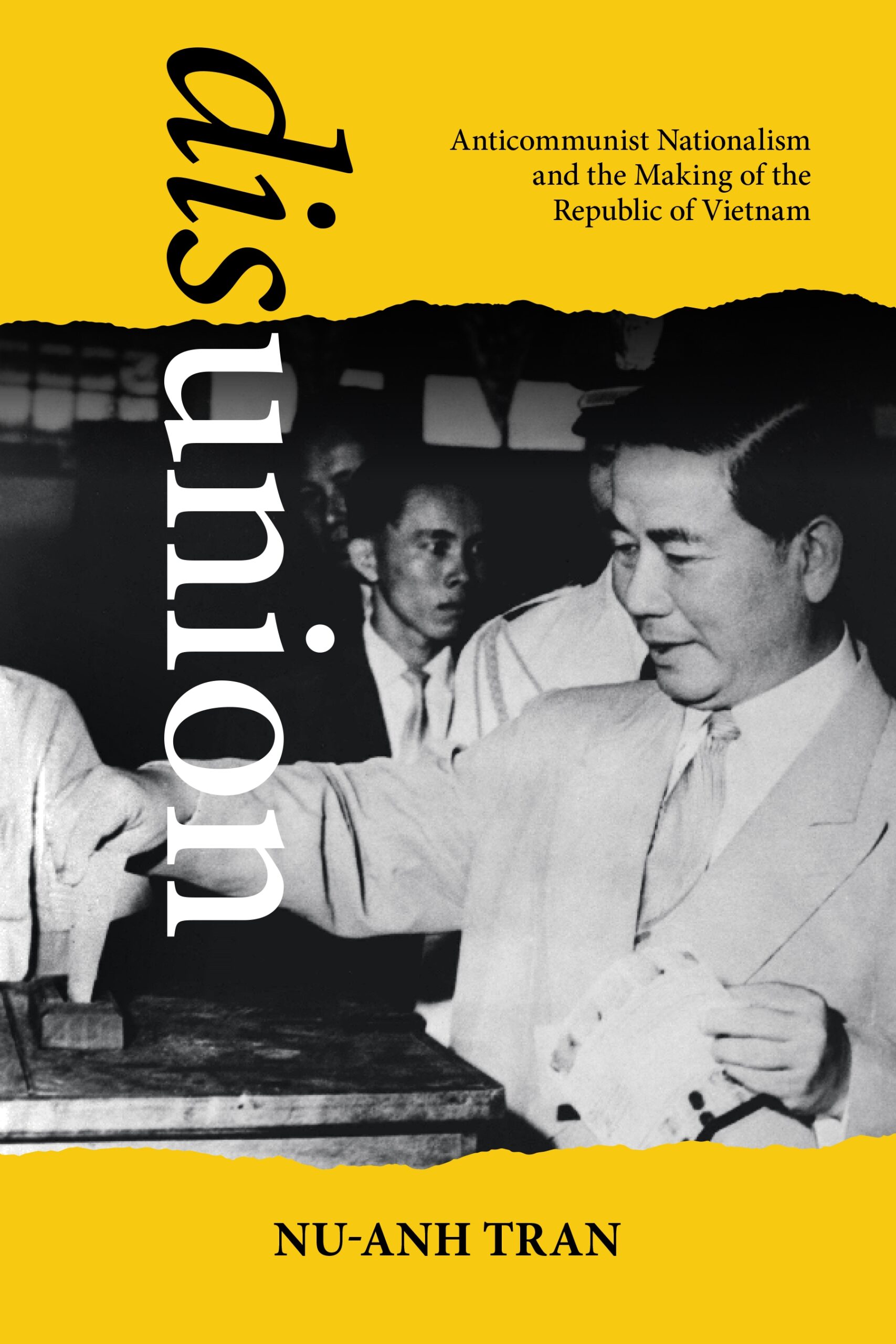Disunion: Anticommunist Nationalism and the Making of the Republic of Vietnam
- About the Book
-
Since the 1950s, the domestic politics of the Republic of Vietnam (RVN) has puzzled outside observers. To these external analysts, the American-backed regime seemed to be plagued by instability and factionalism for no apparent reason. Their bewilderment, however, has obscured a deep and complex history. In Disunion, Nu-Anh Tran shows how factional struggles in the Saigon-based republic reflected serious disagreements about political ideas at a pivotal moment in the lead-up to the Vietnam War.
The book traces the emergence of Vietnam’s anticommunist nationalists back to the struggle for independence and explores how their alliances were tested and then broken during the rule of the RVN’s first president, Ngô Đình Diệm. The anticommunists rejected the authoritarianism and ideology of the Vietnamese communists and dreamed of building an independent, democratic government that would unite the Vietnamese nation. The RVN was supposed to be the fulfillment of this long-cherished vision. But discord soon erupted among the anticommunists. Politicians fiercely debated to what extent the government should be democratic and which groups had a legitimate place in political life. The unresolved disagreements provoked intense and continuous infighting that troubled the RVN throughout the regime’s existence. Ultimately, the animosity undermined any possibility of realizing the anticommunists’ shared vision for the country.
Based on previously neglected primary sources and extensive research in Vietnamese and American archives, Disunion paints a rich and sensitive portrayal of leaders and activists in the RVN. Anticommunist nationalists were deeply devoted to their homeland and inspired by forward-looking visions, but they were also hobbled by their failure to live up to their lofty ideals. By examining these historical figures on their own terms, the book offers a fresh perspective on the political history of South Vietnam that has remained misunderstood to this day.
- About the Author(s)
-
Nu-Anh Tran, Author
Nu-Anh Tran is associate professor in the Department of History and the Asian and Asian American Studies Institute at the University of Connecticut.
- Reviews and Endorsements
-
- With Disunion Nu-Anh Tran has set herself an ambitious task: nothing less than reconceiving conventional scholarship on the State of Vietnam (SVN) and its successor, the Republic of Vietnam (RVN) under Ngo Dinh Diem. By the end of a carefully crafted, tightly written narrative, the author has demonstrated that the RVN “was neither an aberration in Vietnam’s struggle for independence nor an ‘invention’ or ‘offspring’ of US foreign policy.” On the contrary, the Saigon government was an outcome of the revolutionary movement and part of a Vietnamese political tradition that predated and outlasted American involvement. The RVN, she reveals, was made through the struggles of Vietnamese and their contests over how to realize a vision of “anticommunist nationalism” that could divide as easily as it united.
—Gerard Sasges, National University of Singapore - Nu-Anh Tran’s book Disunion: Anticommunist Nationalism and the Making of the Republic of Vietnam, offers a fresh perspective on the Vietnam War and its legacies by engaging and analyzing a largely neglected archive of Vietnamese-language sources. In doing so, Tran makes a persuasive case that overturns the conventional wisdom that the US’s hand was forced in propping up up the dictatorial Ngô Đình Diệmin as the only feasible option in the fight against communism. Tran’s research reveals that the US could have chosen any number of Vietnamese allies as it sought to stop the expansion of communism. Rather, the US chose to invest in the most authoritarian option because of colonialist skepticism around the Vietnamese capacity for democracy. This remarkable book adds complexity and nuance to the ever-present American justification of violent intervention as a means of ‘spreading democracy.’
—The Sharon Harris Award Committee
- With Disunion Nu-Anh Tran has set herself an ambitious task: nothing less than reconceiving conventional scholarship on the State of Vietnam (SVN) and its successor, the Republic of Vietnam (RVN) under Ngo Dinh Diem. By the end of a carefully crafted, tightly written narrative, the author has demonstrated that the RVN “was neither an aberration in Vietnam’s struggle for independence nor an ‘invention’ or ‘offspring’ of US foreign policy.” On the contrary, the Saigon government was an outcome of the revolutionary movement and part of a Vietnamese political tradition that predated and outlasted American involvement. The RVN, she reveals, was made through the struggles of Vietnamese and their contests over how to realize a vision of “anticommunist nationalism” that could divide as easily as it united.





